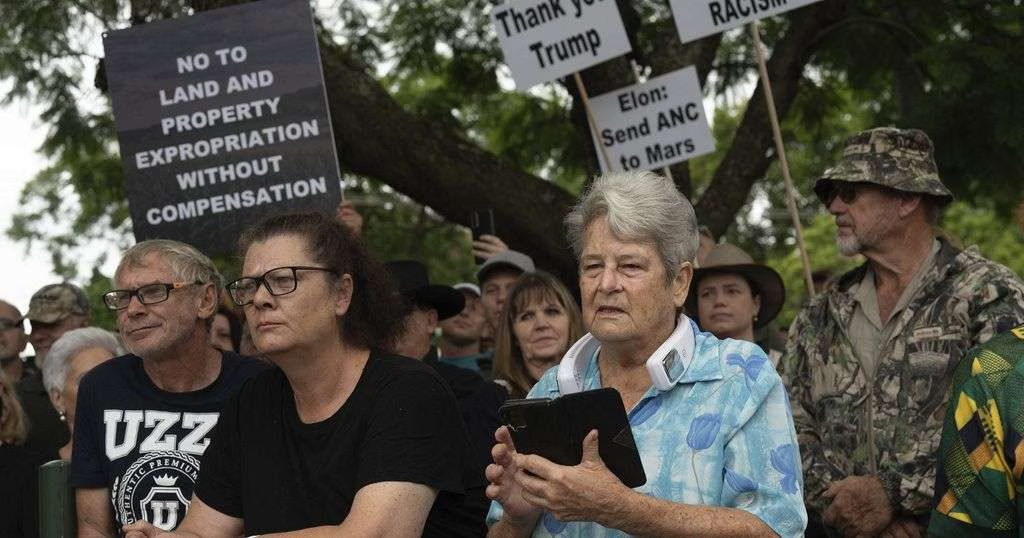Breaking News: White Afrikaans-Speaking South Africans Set to Arrive in US as Refugees
In a move that has sparked intense debate, the first group of white Afrikaans-speaking South Africans is expected to arrive in the United States early next week, having been granted "refugee status" by President Donald Trump. The group claims to be persecuted in their home country, citing "unjust racial discrimination" and land expropriation as primary concerns. This development comes after President Trump signed an executive order in February, halting all aid to South Africa and accusing the government of doing "terrible things" to the Afrikaner community.
At the heart of the issue is a recent law that allows for land expropriation without compensation in extremely rare cases, aimed at addressing the stark land-ownership disparities that are a legacy of apartheid. South African officials argue that this policy is a necessary step towards redressing historical injustices, as a large percentage of the country’s private land remains in white ownership. Notably, no expropriations have taken place under this law, contradicting the narrative of widespread land seizures.
The Afrikaner ethnic group, mostly descendants of Dutch colonialists with a long history in agriculture, makes up about 60% of South Africa’s white minority, which accounts for approximately 7.2% of the population. Those seeking refugee status in the US also cite the desire to escape high crime rates, particularly farm murders, as a reason for their relocation. However, police statistics indicate that out of 26,000 murders last year, only 44 were linked to farming communities, with the overwhelming majority of murder victims being black.
The assertion that white South Africans face discrimination has been a talking point in far-right circles for years, echoed by figures like Elon Musk, who was born in South Africa. In contrast, many prominent Afrikaners and South Africans have dismissed President Trump’s statements as patently false, highlighting the complexity of the issue. The SA Chamber of Commerce in the US reports that over 67,000 people have expressed interest in the president’s offer, underscoring the significant attention this issue has garnered.
As the world watches the unfolding situation, it’s clear that the narrative of persecution and discrimination among white South Africans is multifaceted and contentious. With President Trump’s executive order coming on the heels of a suspension of all US refugee admissions due to security and cost concerns, the move raises questions about the criteria for refugee status and the politics of international aid. As the first group of refugees prepares to arrive in the US, the international community is left to ponder the implications of this unprecedented decision and its potential impact on global perceptions of discrimination, refugees, and the complexities of post-apartheid South Africa.
